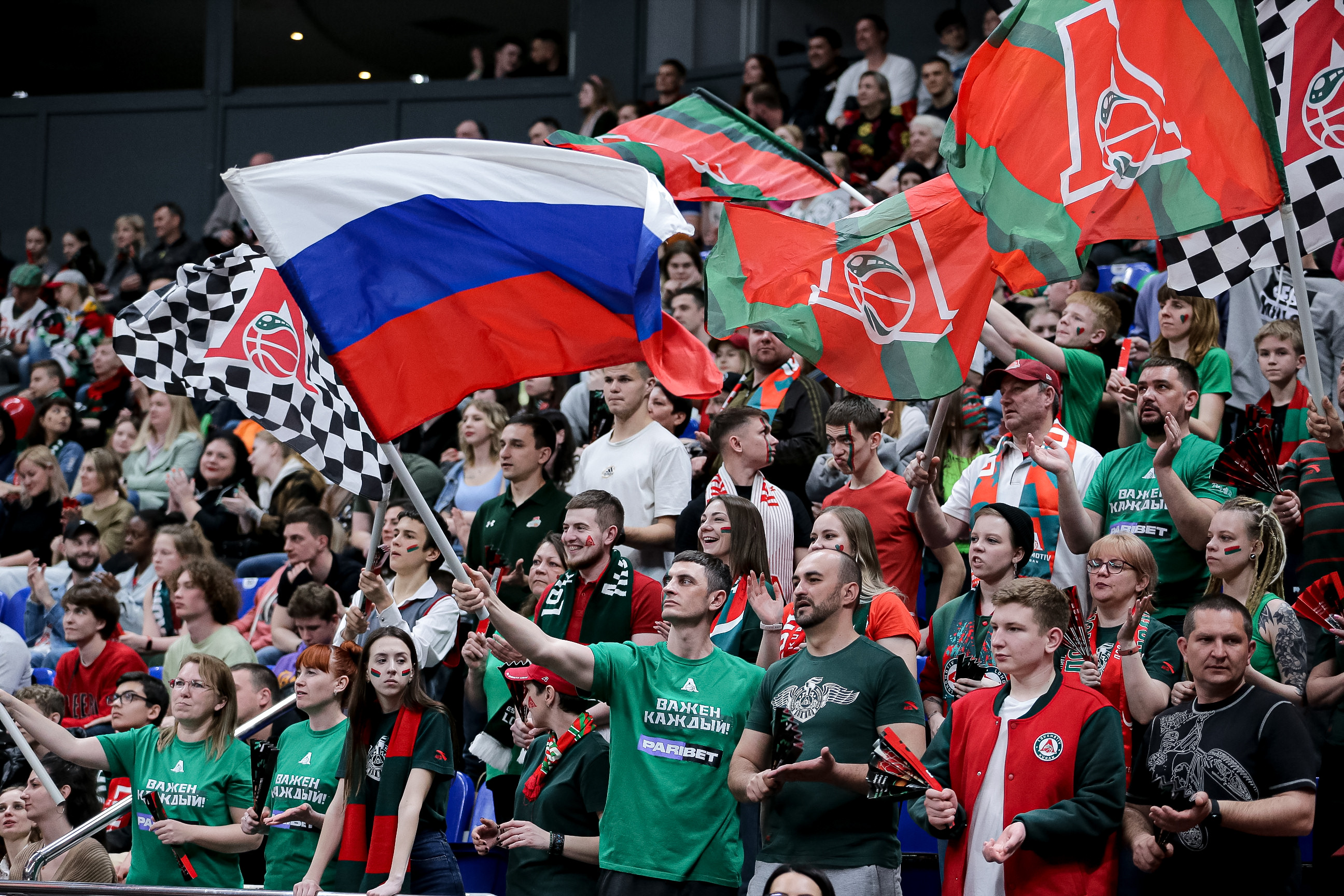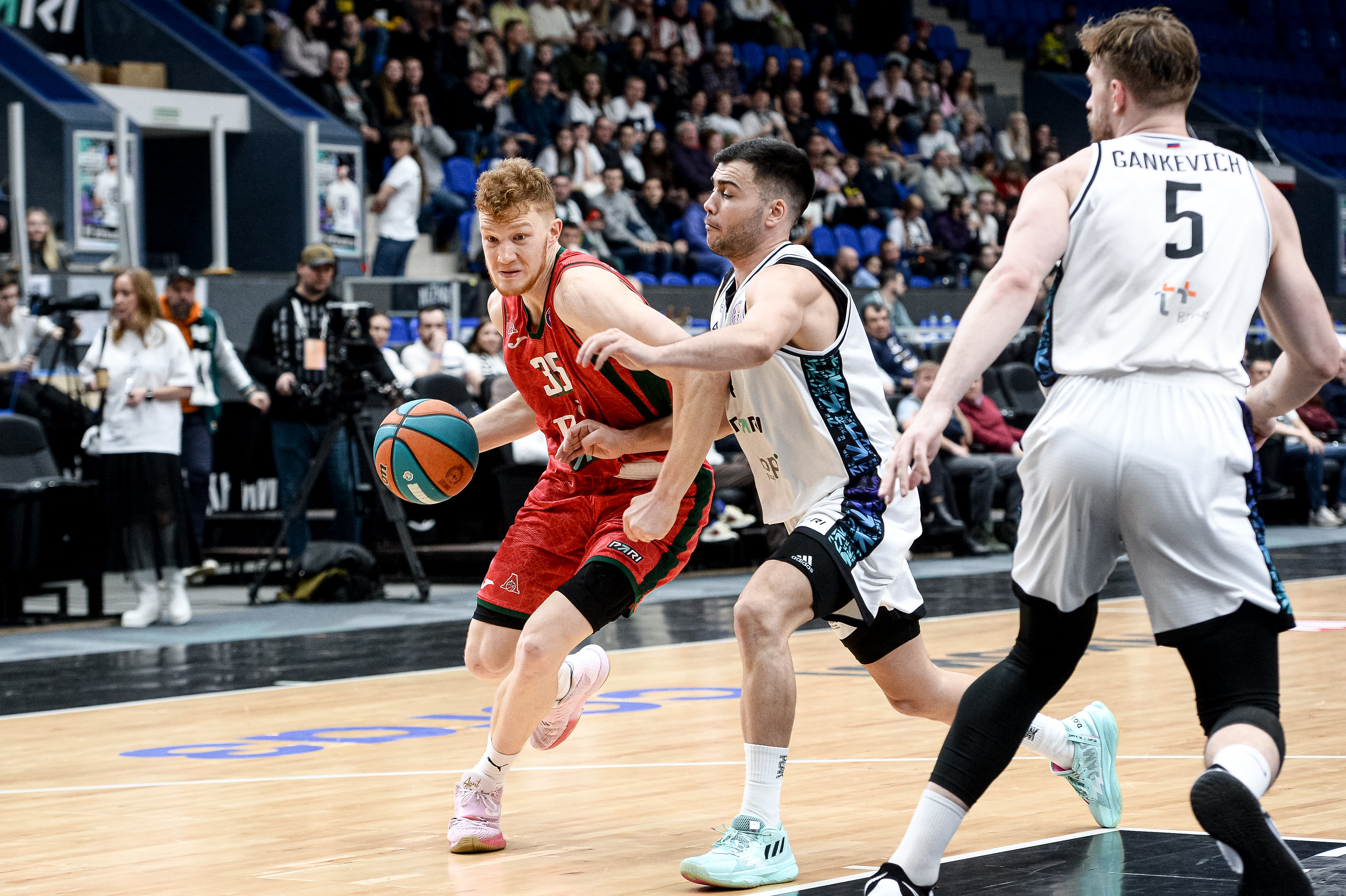VTB United League General Manager Ilona Korstin in an interview to Kommersant gave her evaluation of the season and talked about what the League needs to progress further.
– How well did MBA and Samara integrate into the League?
– Of course, there were concerns about their ability to compete at the League level. But both teams were very decent. MBA made it to the Top-6 in their debut season and even made Zenit nervous in the first round. And I can say with good reason that last season was the best in the history of the League. Lots of games, almost daily, good format, intriguing Playoffs. We ended up being much more interesting for the fans.
– Has this had any effect on the TV ratings?
– There is an OTS (Opportunity To See) indicator that reflects, roughly speaking, how many viewers watched our broadcasts. The league had 576 million viewers at the end of the season. This does not happen by itself, it is an indication that the product we offer through the broadcasters is in demand. A few years ago it was clear to everyone that CSKA, no matter what happens, is the champion. This has not been the case since the season before last. What’s more: Zenit, which had interrupted the Army team streak, had a shaky regular season; CSKA, seeking to regain the title, stumbled in the Playoffs after a decent regular season; Lokomotiv Kuban exploded in the Playoffs. It was interesting to watch the teams rivals.
– Has this had or will it have any effect on income that the League receives from TV contracts? In 2021, for example, it was reported that the League will receive 40 million rubles from Match TV. A year after the contract was extended, the League representatives said that the new contract was better than the previous one. How much revenue are there from TV contracts?
– Match TV partners asked to keep the details confidential. But I can tell you that we actually had 2 offers: from Match TV and from Okko. The first offer was indeed more interesting financially. Plus for our sponsors it was important for us to be widely represented on the federal TV. But there was a time when the League paid TV channels to organise the broadcasts. We have a slow, long way to go. At first we paid them, then they paid us, something like a 1000 roubles, now they pay a completely different amount. We are gradually changing the attitude of TV companies to our product and the process is under way. At the moment our communication with TV is more positive and pragmatic than before.
– What about the games attendance during the season?
– The numbers have risen noticeably. The record season attendance of 12,000 came during CSKA’s 100-th anniverary celebration. In general, the Semifinals and Finals were sold out. As for average attendance, it was 3,000. That’s almost twice as high as the season before.
– Do you feel the clubs are still learning how to make money since attendance is growing, or are they still unconditionally relying on owners and sponsors support?
– We try to get them used to it. For example, we have a system of rewards. It takes into account various parameters. The first one is the sports performance itself. But there is also an award for marketing. The key factors are attendance and tickets sold. The number of issued invitations may not exceed 30 percent of total attendance. Otherwise the club will drop out of the marketing reward pool. This happened, for example, with Zenit. We understand that all teams are afraid of empty stands, but Zenit’s philosophy was not understood by the League. The team is the champion, you have to sell tickets and people will go to the champion’s games.
– And who was the leader in ticket sales?
– PARMA-PARI. By the way, Samara are also in the Top-4, despite their newcomer status.
– Can we wait for new sponsors to appear in the League? Especially against the background of a very exciting season?
– We are in contact with many companies, but times are tough and it is really hard to find someone new. But we are working in that direction. I would also like to say that in addition to the cooperation with our traditional sponsors, the League also earns revenue from bookmakers’ fees. There are discussions about the return of beer to arenas. The League is involved in the work on the drafting of the relevant legislation and supports it. But it is important to us that not just the sale of beer is allowed, but that its advertising in arenas is also allowed. At the moment these things don’t come together. This is the potential for revenue growth for both the League and the clubs.

– CSKA president Andrey Vatutin said that Russian players are in short supply today and therefore dictate their terms to the clubs. Does it make sense in this regard to revise the limit on foreign players?
– On the one hand, I understand the clubs’ management. Russian players probably cost more than they would have earned abroad. And the foreigners have begun to ask for a raise. On the other hand there is a positive side. Not only for Russian basketball players, but also for Russian basketball in general because in the current system Russians can get more playing time, gain more experience and expand. In the past we talked a lot about the dominance of foreigners and the impossibility to be in the starting lineup. The situation is different now. After February 2022, the top foreigners increasingly prefer teams that play in the Euroleague. Yes, the lever of foreigners in the League is also good, but it’s still a little lower than before. Now young Russian players have a chance to show themselves. So overall I don’t see a problem for the development of Russian basketball in this situation.
As for the club basketball, that’s another matter. For example in the new season there will be more teams in the League and it’s necessary to keep a high level of basketball. The regulations say that the team must have at least 6 Russian players in their roster, and naturally the competition is fierce for quality players. It has one side effect, by the way: players’ career longevity increases for both men’s and women’s basketball. The way out of this deficit story is to bet on the development of their youth projects. The timing is right. Russian clubs are not involved in international competitions right now, and you can look at what Lokomotiv Kuban is doing. They have their own academy, their own way of developing players. Just remember how unevenly they started the season and how they reached the Finals, beating CSKA on the way. Now is the right time. And, after all, you can always look for reserves in the Superleague.
– The League has been in a mode for many years where there are 4 best teams and everyone else. Is there any chance that this elite group will be supplemented by someone?
– Actually, the fact that we already have 4 big teams is great. But do not underestimate the other teams. Take, for example, Pari Nizhniy Novgorod. The team won the Russian Cup last season, beating Zenit in the final. It’s not our tournament; it’s organized by the Russian Basketball Federation, but that win speaks volumes about our team’s level of basketball. I even think that the effort that Pari NN put into the Cup wasn’t enough in the first round of the Playoffs against Lokomotiv Kuban. The leaders were injured, players were tired in general. If not for that our whole playoff run could have gone differently.

– The European Women’s Basketball Championship ended on Sunday. Did you follow it? Or is it not the same without Russia’s participation.
– I followed it a bit, but without Russia, let’s just say, it feels strange. What about basketball! Take football. European Championship 2024 qualifiers are on. I see Kazakhstan, Moldova, Estonia and some islands but not Russia. In such a situation, our fans lose any emotional appeal for the tournament. Yes, I can appreciate the European Championships as a professional in some points, but again, that’s not the case. It’s a pity that our players, who are just now entering the age when they can already assert themselves, are deprived of that opportunity. They are still stewing in their own juices. But time is running out.
– Russian basketball had a generation in 00’s that won medals in World Championships, Europe and Olympics for 9 years in a row. By the way, there’s a fascinating book about that generation of the Russian women’s national team, one of whose outstanding representatives you are, the book “Girls Like Stars” has been published recently. Do you miss those times and is there a chance for today’s generation of women basketball players to return to the podium of any major tournament?
– Of course, that was a great time, with so many memories and emotions. However, this book was not meant to humor the ego of the players of that Golden basketball team, but it will be very useful all young women basketball players. By the example of our generation, of that recent history, they will see the benchmark to strive for, they will see that it’s real. Honestly, for a while after my playing career was over, I couldn’t watch basketball, and the results of our national team were really disappointing. But in recent years we’ve brought up a really talented generation of players. These once superstar players are at that mature age, when they can and should prove themselves and bring the women’s national team back to the podium. Perhaps this European Championship could be the starting point for a return to the old winning tradition. Sadly, for well-known reasons we cannot compete on the international stage at the moment.





















